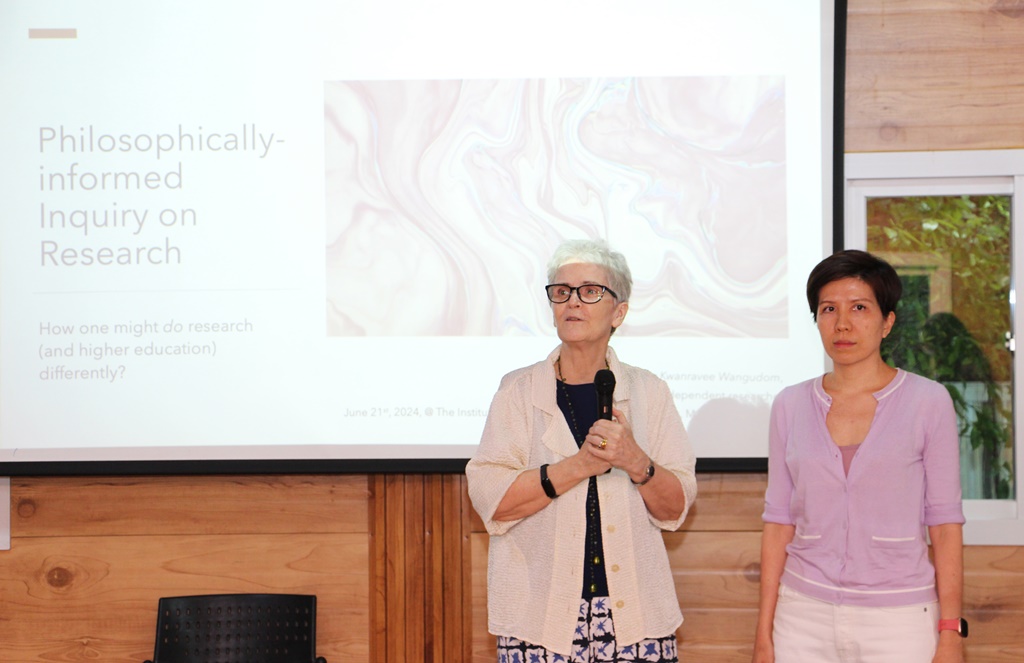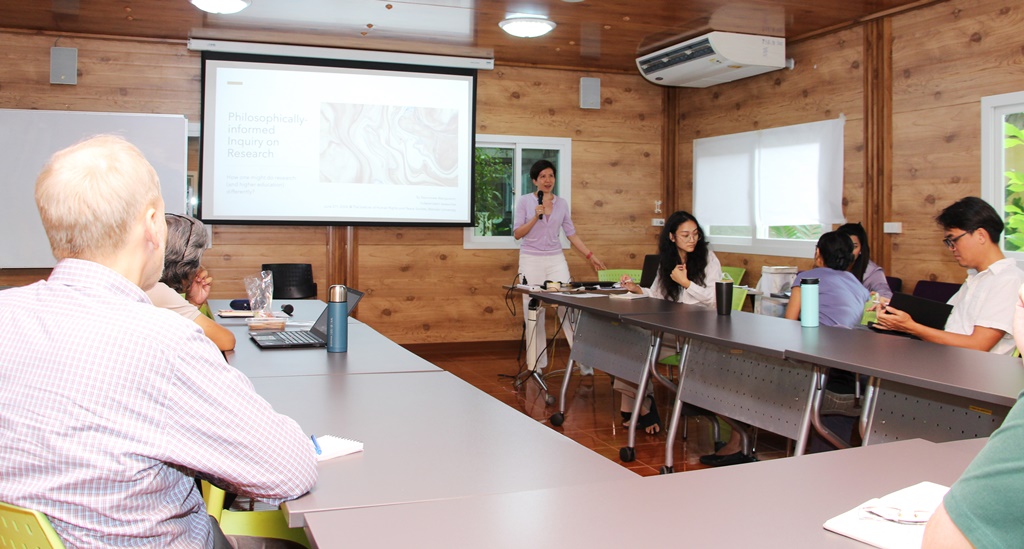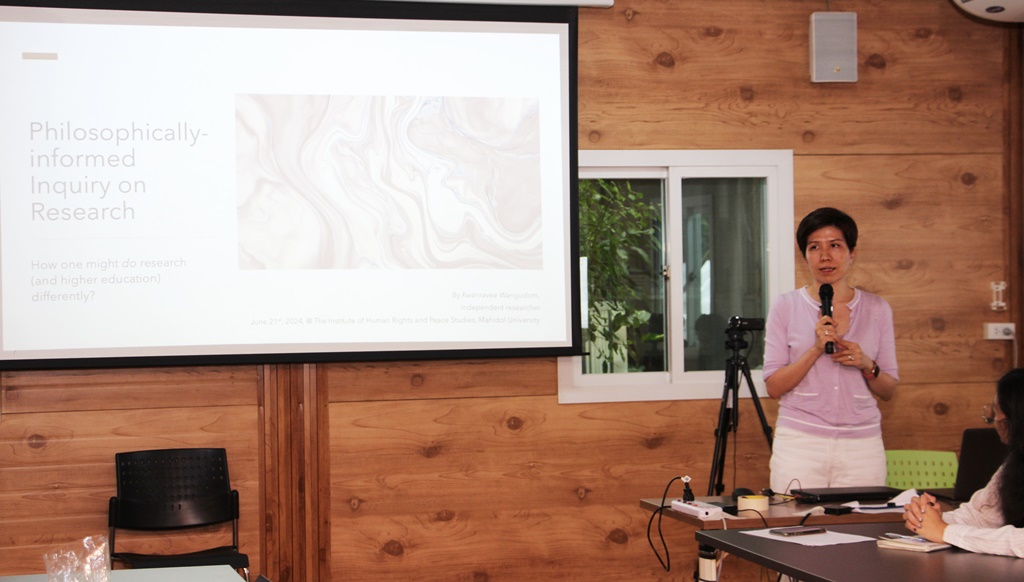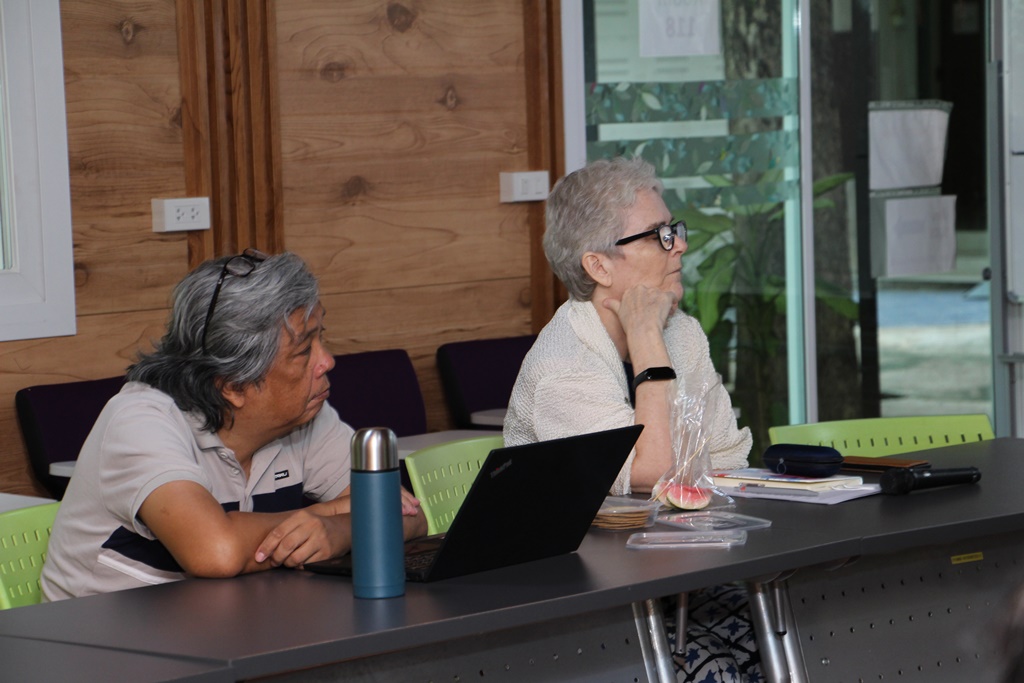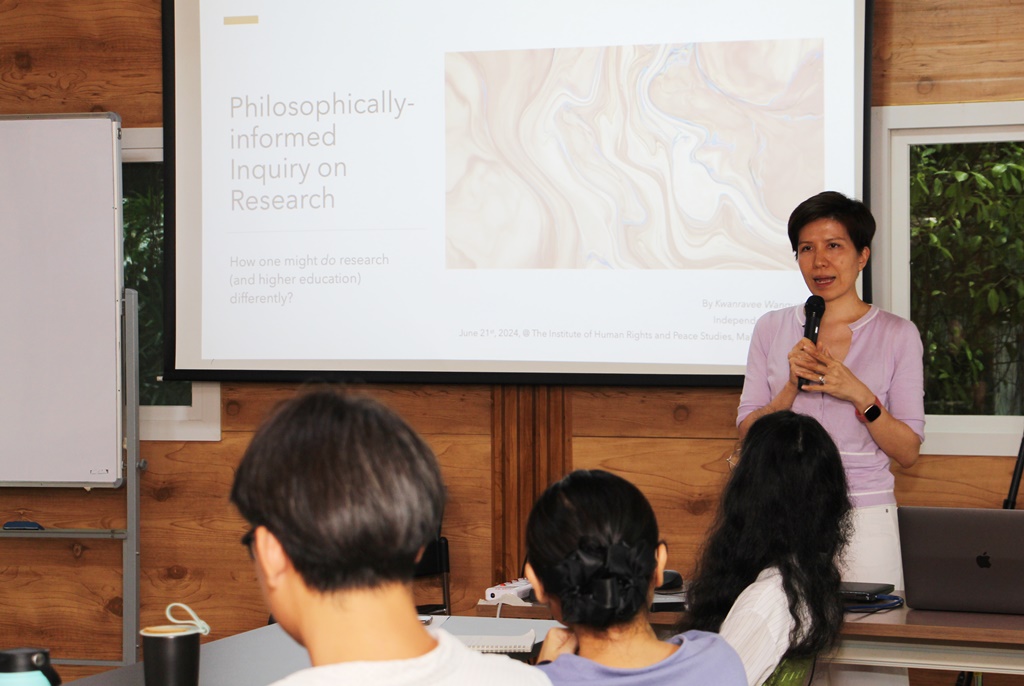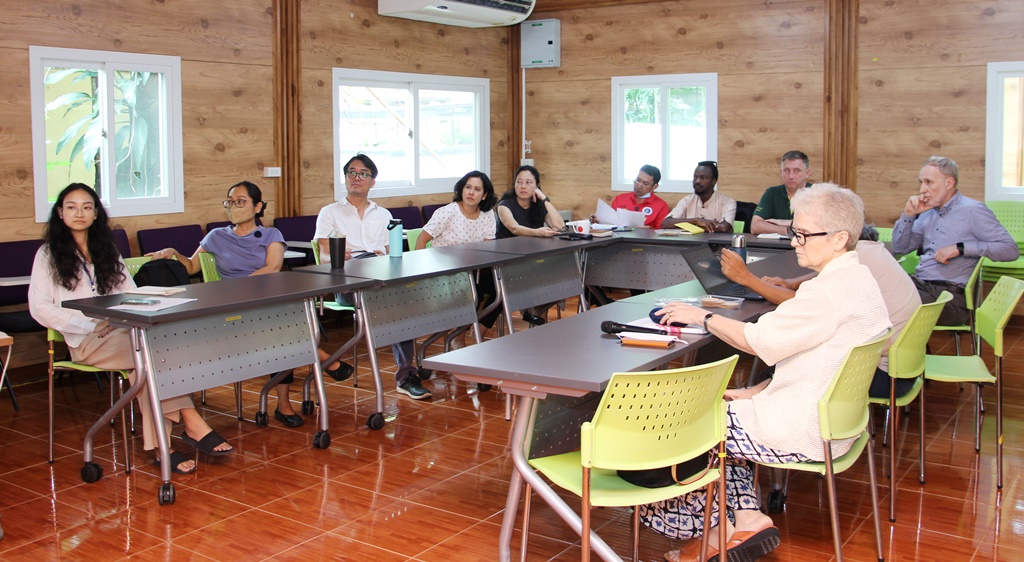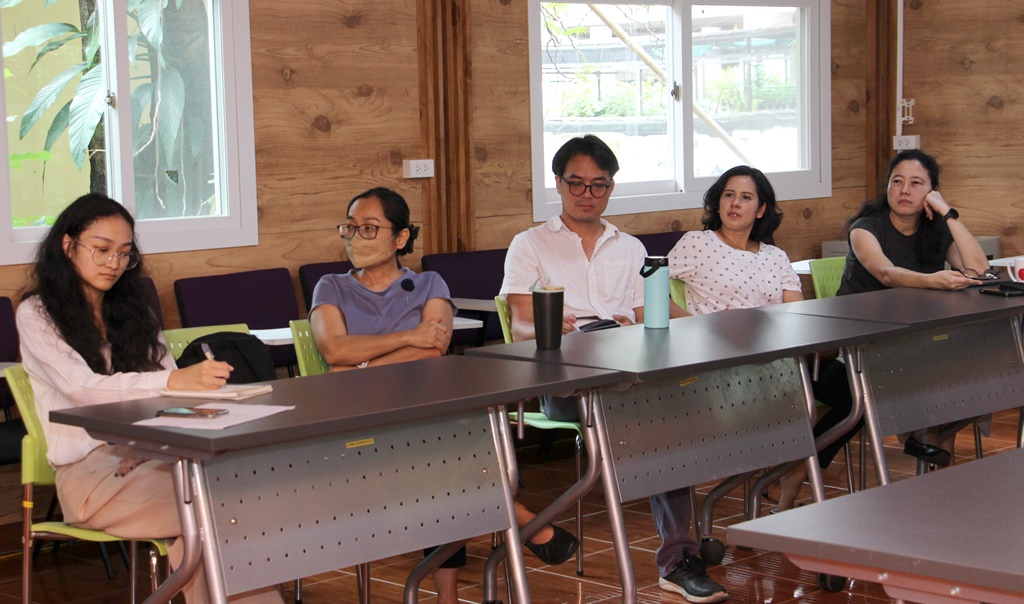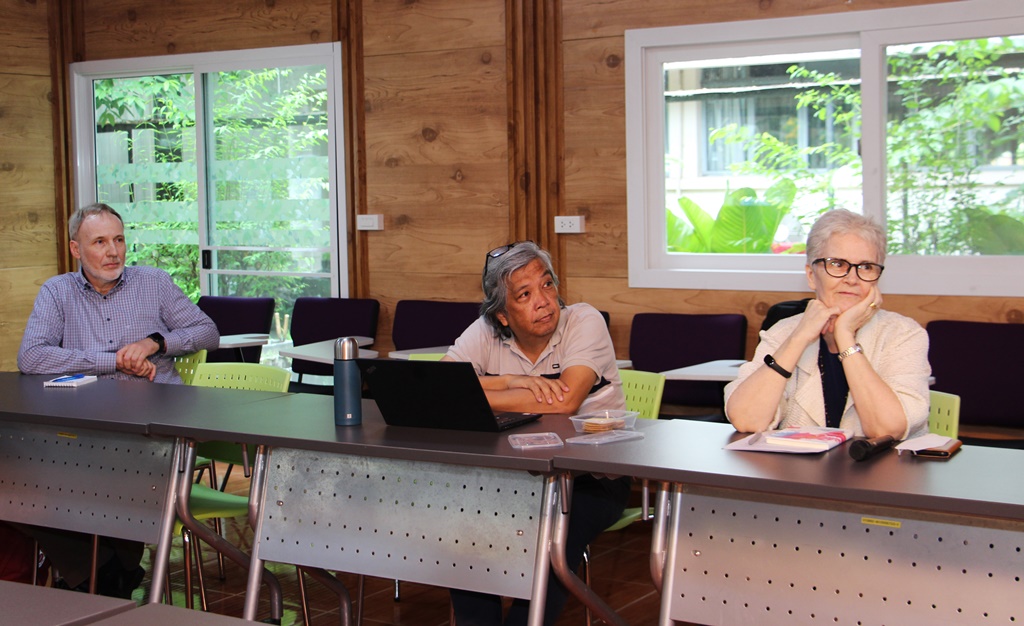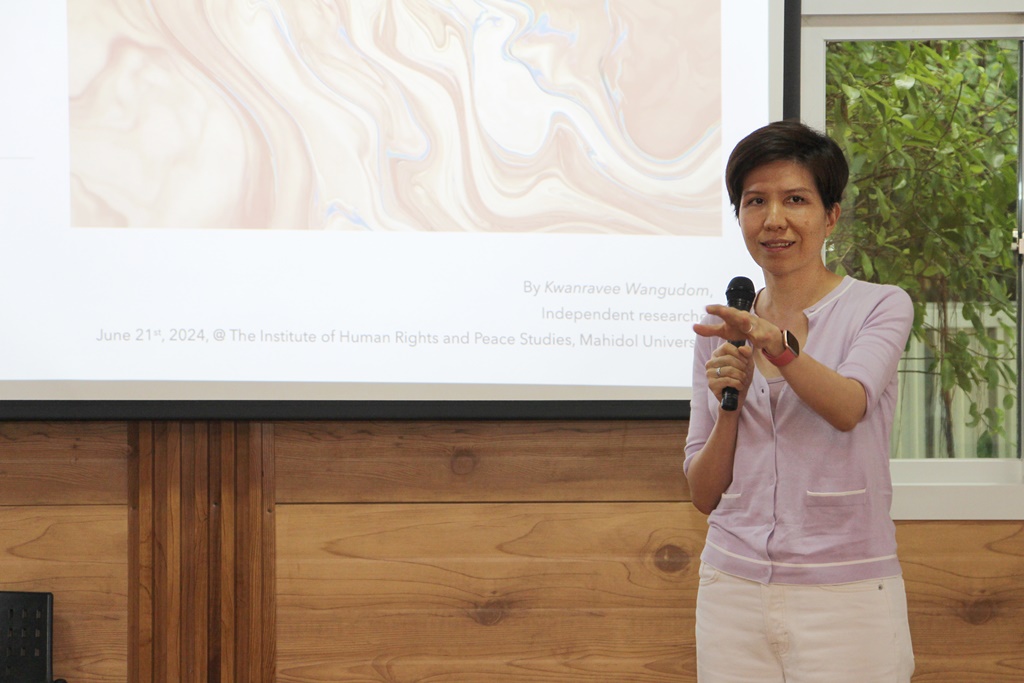
On 21 June 2024, the Institute of Human Rights and Peace Studies hosted a distinguished talk by Kwanravee Wangudom, a former lecturer and independent researcher, on the topic “Philosophically-Informed Inquiry on Research: How Might One Do Research (and Higher Education) Differently?”.
Kwanravee invited the audience to revisit the way in which researchers are taught to do and think of research. That is, the scientific work to fill a knowledge gap with the researcher seeking to understand or investigate a particular phenomenon through a range of methods that will produce a verifiable finding. This often involves the practice of identifying a research question whose answer will fill a gap in the research literature, choosing a methodology that aligns with the question, designing the study from some already established designs, collecting data, coding data to identify themes and patterns that “emerge” from the data, and then writing up the study and reporting the finding. However, it is this intentional, predetermined, linear, systematic nature of doing inquiry that is at stake.
To elaborate, not only did Kwanravee take the audience to delve into the foundation of knowledge production and the nature of being, but she also drew on her PhD journey working on the lived experiences among the ethnic Chinese in Thailand. Like many researchers she followed this linear trajectory of doing research and conducted in-depth interviews with her research participants. Yet, as she returned from her “fieldwork” to sit with her “data”, something strange happened. She encountered a sudden attack of suffocation at an unanticipated event of loss, which through time, had led to the emergence of what might be thought of as inner child. How this was deeply entangled with that of her research participant as she listened to the “interview data”. Not only had she come to understand self in a different light, but she also found that what mattered remained at the periphery – including outside language and what is visible. Slowly concepts organizing what Elizabet St. Pierre calls the conventional humanist methodology (/paradigm) such as self, voice, and data were no longer intelligible for her.
This has opened up different ways of doing inquiry — as well as higher education – in the realm of, again, what St. Pierre has come to coin, the post qualitative inquiry that embraces strangeness, messiness, uncertainty, and resistance to understanding as opposed to one that seeks clarity, reliability and predictability (how all of these have sustained through cause and effect and binary thinking i.e. subject vs object, mind vs body). Kwanravee drew on works of philosophers within this ‘Posts’ philosophies realm including Gilles Deleuze, Donna Haraway and Karen Barad. At the end of her presentation, Kwanravee stresses that for education to be transformative, one needs to embrace strangeness and vulnerability, allowing oneself to get lost. She also cited the work of Donna Haraway, Staying with the Troubles for researchers and educators (and anyone) to live in the thick present (as opposed to abstract futurism) and with wonder and awe, and remain actively interested in others (humans and non-humans) amidst uncertainties that living entails.
